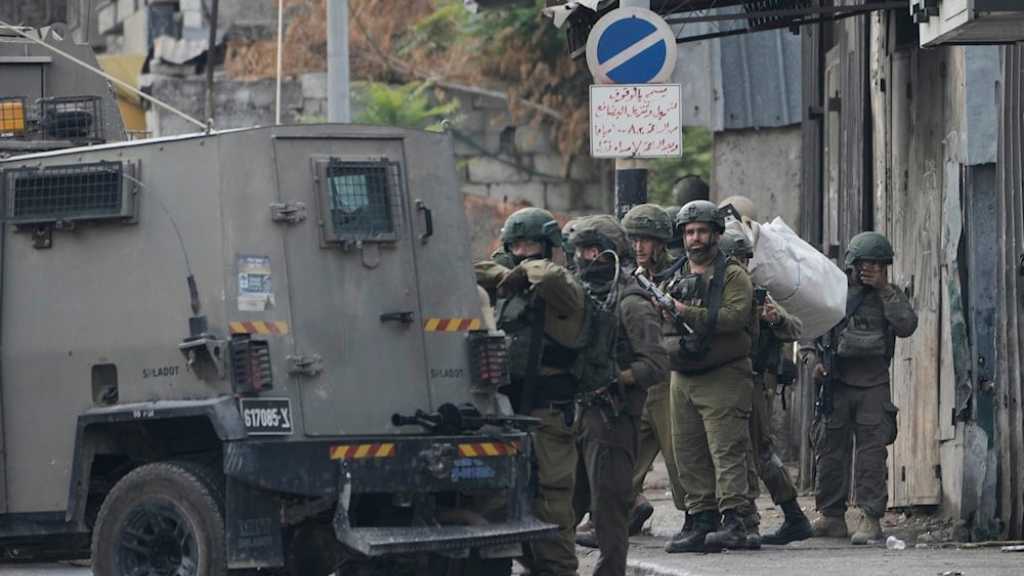“Israeli” Journo: We Will Sink into the Quagmire of International Isolation

By Al-Ahed News, Hebrew Media
Anna Persky, a writer and political affairs journalist at the “Israeli” “Walla” website, wrote:
“Like a scenario that has been repeated to the point of exhaustion, ‘Israel’ once again finds itself at the center of a deadly media campaign—and once again in the position of the perpetual loser. Images of emaciated children in Gaza, murky water, and crumbs of bread have dominated headlines across the globe. But behind these images lies a deeper battle—one that takes place not only on Gaza’s soil, but within the heart of the moral consensus in ‘Israel’: a battle in which Hamas plays chess while ‘Israel’ responds as if playing checkers”.
Persky continued, “The growing debate about the ‘starvation of Gaza’ is receiving prominent and dominant attention in the international arena, but it overlooks the basic starting point: Hamas is still holding captives. Instead of focusing on the demand for their immediate release, the focus has shifted to the humanitarian situation in Gaza”.
She further stressed, “We must set the record straight: what’s happening is not fate, and it’s not a case of ‘nothing can be done, the majority is against us.’ It is a clear failure in media and awareness: ‘Israel’ is portrayed as the sole party responsible for the crisis, while the captives—the true reason for the war—are pushed out of public discourse”.
Persky added, “Theoretically, things could have looked very different. ‘Israel’ had dealt a decisive blow to Hamas as an organized military force. The leaders of the October operation were eliminated, and Hamas in Gaza no longer controls as it once did—contrary to how it hopes and tries to appear. So, what does ‘Israel’ do with this significant achievement of the ‘Israeli’ forces? Nothing. Instead of formulating a clear policy for the next phase—for reconstruction, for media strategy, or for pursuing a political resolution or a strict ceasefire—‘Israel’ chose to sink into a kind of ‘strategic vacuum,’ where actions are driven by inertia and political pressure rather than by any clear vision or plan”.
The Zionist journalist further said, “This sounds like a terrifying replay of yesterday’s news—and the day before that. This is exactly what we wrote a year ago, six months ago—and here we are writing it again today. Nothing has changed. And why would it? This is policy dictated from the top. But the reality around us is not static—it is changing, and unfortunately, not in our favor. Halting humanitarian aid was supposed to pressure Hamas, but in practice, it ignited a global campaign for which ‘Israel’ was unprepared. With no effective media apparatus, no continuous updates to allies, no accurate or timely responses, and with ministers issuing reckless and provocative statements live on air, those responsible for the media battle—who failed in it—can no longer claim this was unexpected or unavoidable. ‘Suddenly we heard an explosion.’”
She went on, “‘Israel’, in the eyes of the world, has shifted from being the ‘victim of attack’ to the ‘oppressive force’—and this could have been avoided. The role of ‘Israel’ in this deterioration cannot be concealed. Internal political management—particularly the submission to pressure from the right-wing bloc—has made the prime minister a hostage to coalition considerations.”
Persky pointed out, “In such a situation, it’s not surprising that every attempt to push for a resolution—or even to formulate an effective media strategy—is thwarted before it’s even born. It could be said that these are not merely coalition considerations, but also a reflection of the views of the political base—or the position of the electoral base that carries significant weight in Netanyahu’s calculations. But that is mere wordplay that does not change the reality: the absence of a media strategy is a direct result of the political strategy”.
She added, “But even the White House—led by President Donald Trump—is not without responsibility. Despite expressing, on several occasions, his desire to end the war in Gaza, Trump chose to believe Netanyahu’s promises that ‘Hamas is about to collapse’”.
“It appears this painful realization has started to sink in over recent days, with the collapse of negotiations in Qatar and Hamas’s response, which deeply disappointed the American president. Hamas has long understood the West’s weakness: morality and compassion. It exploits these values—not to protect its people—but to pressure ‘Israel’.”
Persky argued, “Every image of a crying infant or a starving elderly woman is a media missile that penetrates global public opinion. It’s a known and effective strategy. It doesn’t matter how many IOF spokespersons show aid trucks waiting at the border—when the image is one of hunger, the narrative has already been written.”
“In a fair world, the first demand would be clear: the release of captives. Only after that should full humanitarian aid and improved conditions in the Strip be provided. Not one instead of the other—but priorities must be set.”
“What actually happened, however, is that the order flipped. Now ‘Israel’ is depicted as the side that must justify its very existence, while Hamas—holding captives—is portrayed as the victim.”
Persky further warned, “The consequences are dangerous not only on the media level, but also in practical terms. Hamas gains more time, more moral support, and more incentives to continue its path. Meanwhile, the captives are marginalized.”
“So it’s no wonder that Hamas’s response—amid the uproar over the ‘Gaza famine’—feels like a slap in the face, not like an answer from a group supposedly nearing defeat,” she said, stressing, “If ‘Israel’ wants to return to the political and media track, it must stop merely reacting and start initiating: launch a serious media campaign, keep allies continuously informed and preferably also present a clear deal proposal—without complex stages—that puts an end to this overly prolonged war”.
The journalist noted, “As long as this doesn’t happen, we will continue to pay the price with our global image, and we will sink into the quagmire of international isolation. The situation isn’t static—even if the political leadership in ‘Israel’ hasn’t budged an inch. The false sense of political security under the slogan ‘Trump is with us’ is a dangerous illusion. True, Trump supports ‘Israel’ and supports Netanyahu—but the US president does not live on an isolated island where the only source of information is the phone line between the White House and the Prime Minister’s Office in ‘Jerusalem’ [Al-Quds]”.
She added, “Even President Trump—and his team—see and hear the storm of hunger in Gaza, and its impact on public opinion, including within the US itself and on the positions of Western leaders. Meanwhile, French President Emmanuel Macron remains alone with his initiative to recognize a Palestinian state—but there are many ways to respond to the ‘Gaza starvation’ campaign beyond merely declaring support for a Palestinian state”.
Persky concluded, “‘Israel’ must not reassure itself by saying: ‘Trump is with us, and everything else is background noise.’ In the absence of a clear, sharp, and practical diplomatic and media strategy, we may one day discover that the world has moved from words to action—and by then, it will truly be too late”.
Comments




